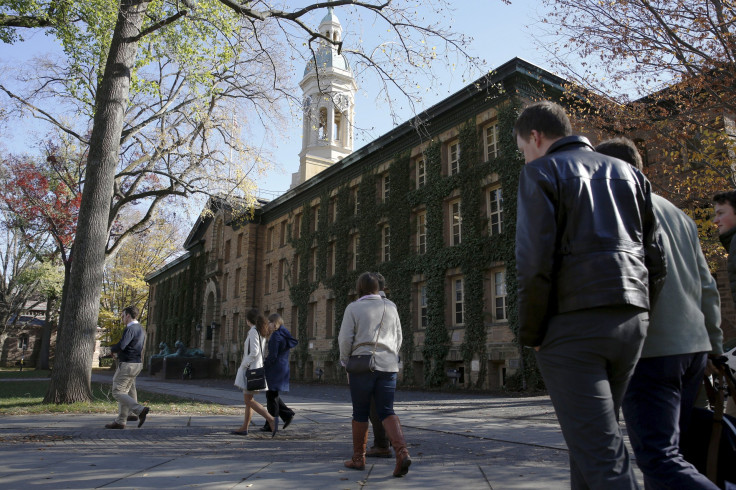Muslims Facing Backlash On Yik Yak After Brussels Terror Attack, Princeton University Student Says

Muslims in the United States are already reporting backlash after terror attacks in Brussels killed 34 people on Tuesday. The Islamic State group claimed responsibility for the attacks, prompting many Muslims to fear that they would face another round of discrimination and suspicion like they saw in the wake of the deadly terror attacks in Paris last year.
The anti-Muslim sentiment has been a presence in the 2016 presidential campaign since last fall, but now it is popping up again on social media and on college campuses. A student at Princeton University in New Jersey told USA Today Wednesday that he had seen fellow students posting concerning comments on social media after the Brussels attacks.
The aftermath of an attack “is always a difficult time for Muslims in the United States,” Nabil Shaikh, a leader of Princeton’s Muslim Students Association told USA Today.
“On Princeton’s campus, students took to anonymous forums like Yik Yak to comment that there are Muslims at Princeton who are radical and would therefore condone yesterday’s attacks,” Shaikh said. “These comments not only are appalling and inaccurate but also threaten the well-being of Muslim students.”
This is not the first time controversy has arisen about the social media app Yik Yak, which allows users on a campus and within a 5-mile radius to post and view anonymous comments. Due to its anonymous nature, there have been concerns over racist postings on college campuses, as well as threats made on the app. Some colleges and universities have tried to ban the app, but this often proves logistically difficult and many have argued such actions do not address the root of the offensive comments.
At Princeton University, the app has caused concern in the past when students have posted about topics such as a group that was said to be mocking African culture and racist comments made by some on the app. The school’s Vice Provost for Institutional Equity and Diversity Michele Minter said last year that she was “appalled by the offensive exchanges” on the app, and Yik Yak itself considered banning messages from the Princeton area, the student newspaper, the Daily Princetonian reported.
After the Paris terror attacks last fall, anti-Muslim backlash escalated from these kinds of social media comments to a spike in hate crimes and attacks against Muslims, mosques and Muslim-owned businesses around the U.S. Many have said they are now used to this pattern and are preparing to help their communities, and leaders in many states spoke out this week to dissuade anti-Muslim sentiment. Civic leaders in California, Kentucky, Massachusetts, Minnesota, New Jersey, New York and Ohio among other places made statements in support of Muslims this week.
© Copyright IBTimes 2024. All rights reserved.






















